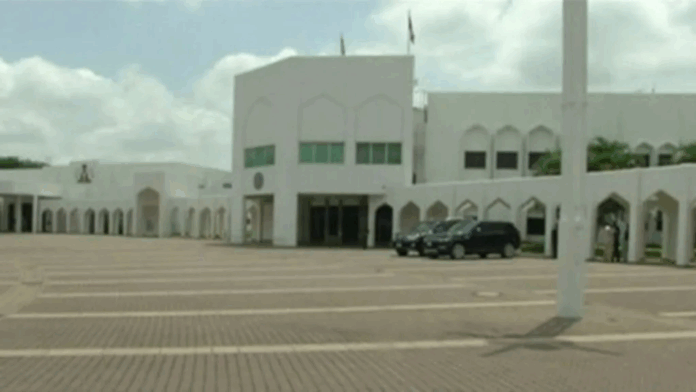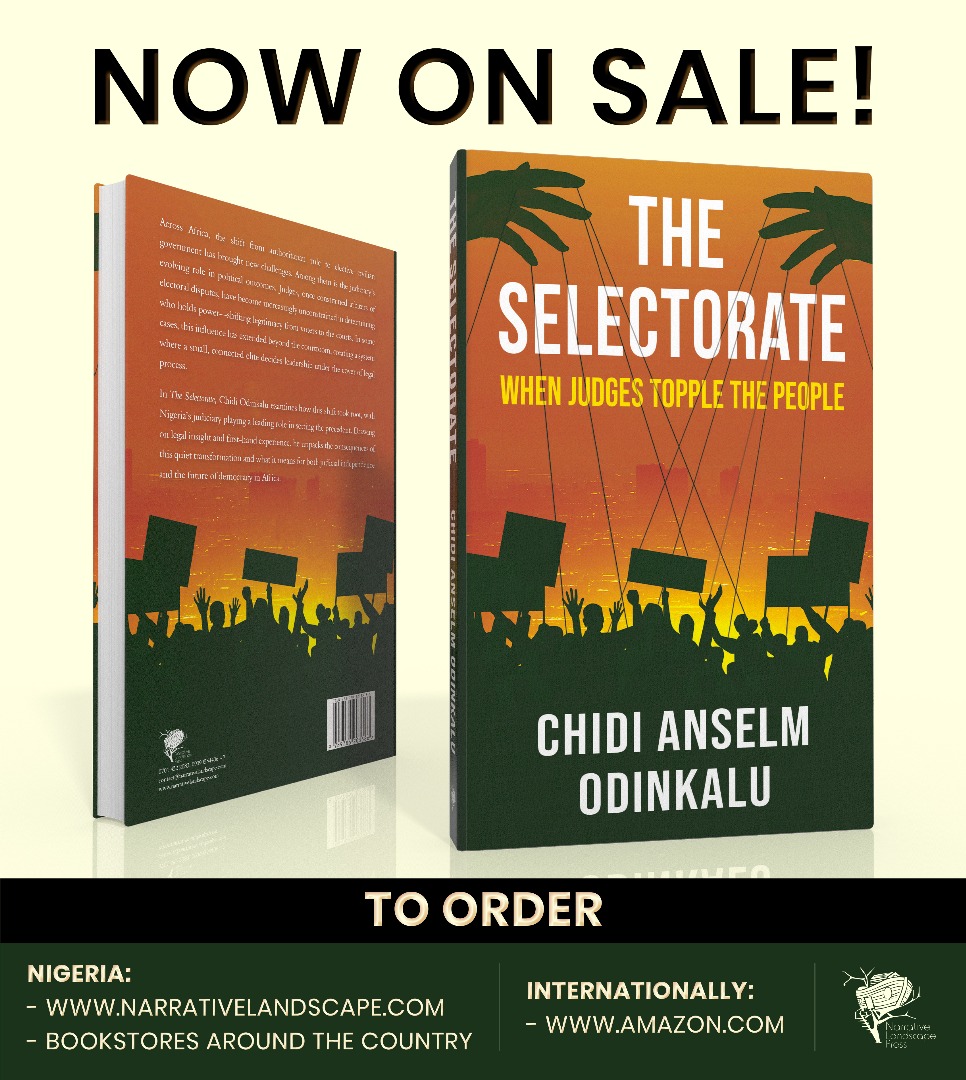By John Onyeukwu
Nigeria’s spokespersons have turned the voice of the presidency into a weapon, and the Sowore controversy shows why this must change
In every democracy, presidential spokespersons are more than messengers. They are custodians of the presidency’s voice, tasked with distilling complex policy into accessible language, defending the administration, and, above all, maintaining credibility. At their best, they serve as interpreters between the state and the citizen, offering clarity in moments of uncertainty and reassurance in times of crisis. Yet, in Nigeria, this role has too often mutated into something else: an arena for combative rhetoric, personal attacks, and narrative manipulation. What should be a channel of trust has instead become a theater of hostility.
From Muhammadu Buhari’s era to Bola Ahmed Tinubu’s presidency, the pattern persists, where the spokesperson behaves less like a national communicator and more like a partisan gladiator. The ongoing controversy surrounding Omoyele Sowore’s labeling of the president as a “criminal,” and the subsequent attempts at censorship and verbal sparring, has only cast this dysfunction into sharper relief, raising deeper questions about the ethical, political, and economic cost of such a communication style.
The presidency’s moral authority rests not only on policy outcomes but also on the integrity of its words. Under President Buhari, spokespersons such as Femi Adesina and Garba Shehu routinely dismissed critics as “wailing wailers,” mocking public anguish over insecurity and poverty. This was not just combative; it was ethically corrosive, violating the philosophical principle that public speech should embody truth, empathy, and respect for citizens’ dignity.
President Tinubu’s spokespersons, inheriting this tone, have shown similar tendencies. In recent weeks, the administration’s reaction to activist Omoyele Sowore calling the president a “criminal” illustrates the drift. Rather than treating the comment as protected political speech, harsh, even indecorous, but permissible in a democracy, the response veered toward censorship. Reports emerged of the Department of State Services (DSS) writing to X (Twitter) to censure Sowore’s account, while presidential aides sparred with him directly online, amplifying the controversy rather than containing it.
Philosophically, this is troubling. A democracy worthy of its name must defend even abrasive speech. To conflate criticism, even when rude, with criminality risks sliding into authoritarian logic and signals fragility rather than confidence. The presidential spokesperson’s role here should have been to clarify, de-escalate, and affirm constitutional freedoms. Instead, the office was deployed as a combat unit, reinforcing a culture of verbal warfare rather than civic dialogue, and in the process weakening the very legitimacy it sought to protect.
The spokesperson’s task is to bridge state and citizenry, ensuring that dissent is managed within democratic norms. Ideally, this role should help a president govern by persuasion rather than coercion, creating the space for dialogue, compromise, and accountability. Buhari’s media team, however, often collapsed that distinction, casting opponents as enemies of the state and routinely presenting dissenting voices as existential threats to national stability. Tinubu’s team, rather than correcting course, appears to be doubling down on the same combative approach.
The Sowore controversy highlights the dangers of this posture. By engaging him directly with partisan retorts, spokespersons elevated what could have been dismissed as one citizen’s provocative language into a national spectacle. In doing so, they not only dignified the insult but also exposed the administration to criticism that it is intolerant of opposition voices. Instead of reinforcing democratic tolerance, they escalated polarization, turning a fleeting remark into a lasting symbol of hostility between government and governed.
More troubling still was the attempt to involve the DSS and press platform providers like X in silencing him. This move carries deeper political risks: it signals insecurity at the heart of power and betrays an instinct toward authoritarian overreach. In a democracy, where legitimacy flows from citizens’ consent, the optics of deploying state institutions against critics is profoundly damaging. It undermines the credibility of reforms, alienates the undecided middle, and entrenches a culture of fear rather than dialogue, conditions that no thriving democracy can afford.
Words do not merely frame politics; they have material consequences. Investors and citizens alike read government communication for signs of stability, maturity, and respect for the rule of law. When statements are inconsistent or combative, they erode confidence, unsettle markets, and increase the cost of doing business.
During Buhari’s years, contradictory messaging on subsidy reforms and currency policy amplified uncertainty and deterred investment. Announcements were often made without clear timelines or explanations, only to be contradicted later by other officials. This created the perception of policy incoherence and discouraged both domestic and foreign capital.
Under Tinubu, this trend has continued, early reforms were poorly communicated, contributing to volatility in fuel and forex markets. Businesses were left without guidance on how to adjust, while households absorbed sudden price shocks without adequate explanation.
Now, episodes like the Sowore spat risk adding another layer of uncertainty. When government appears more invested in silencing critics than explaining reforms, investors draw conclusions about institutional weakness and political fragility. For citizens, the effect is similar: cynicism hardens, confidence shrinks, and volatility persists. Worse still, the cost of mistrust is paid daily, through rising inflation, speculative behavior, and reduced willingness to invest in long-term ventures. In the economic sphere, the presidency’s words are not mere rhetoric; they are instruments of stability or instability.
From Buhari to Tinubu, Nigeria’s presidential spokespersons have become gladiators rather than communicators. Instead of clarifying, they amplify hostility. Instead of stabilizing, they inflame. The Sowore incident is only the latest reminder of how easily the presidency’s voice can lose gravitas when wielded as a partisan weapon.
This pattern reflects a deeper institutional decay: the reduction of official communication into a tool of partisan warfare. Rather than seeing themselves as stewards of a democratic institution, spokespersons often act like party enforcers, blurring the line between governance and propaganda. Each outburst may win applause from loyal supporters, but the long-term consequence is corrosive, it diminishes trust in the presidency, hardens divisions, and cheapens national dialogue. In the end, weaponized communication weakens not only those who wield it, but also the office they represent.
To restore trust, three shifts are imperative: one, ground presidential speech in truth, restraint, and respect for dissent. Even caustic criticism is part of democracy, not a threat to it. A president who tolerates hard words demonstrates moral confidence, while one who overreacts betrays fragility. Two, spokespersons must stop being attack-dogs and instead embody statesmanship, lowering the temperature of debate. Their role should be to clarify, mediate, and reassure, not to score points or trade insults. By doing so, they can reclaim the presidency’s voice as one of authority rather than aggression. Three, prioritize clarity and consistency. Each word shapes markets and investor sentiment, and must be treated as an economic tool. Poor communication can undo months of reform, while deliberate, measured communication can build credibility and attract investment. In this sense, credibility itself is currency, one as valuable as oil revenues or foreign reserves.
Presidential spokespersons under Buhari and Tinubu have often failed to meet these standards. The ongoing Sowore controversy underscores the urgent need for reform. Communication should never be about silencing voices or scoring partisan points; it should be about building trust in institutions and policies.
The lesson is clear: credibility, not combativeness, must be the true currency of presidential communication. If the presidency’s voice is weaponized against citizens, the republic itself is weakened. Democracies thrive when leaders speak with empathy, precision, and restraint, offering clarity in times of confusion and reassurance in moments of crisis. Nigeria’s democratic project cannot afford spokespersons who mirror the aggression of partisan battlegrounds. What is required is a recalibration: to restore dignity to the office, rebuild public confidence, and ensure that words serve as instruments of governance, not weapons of division. Only then can presidential speech become an asset to democracy rather than a liability.
The views expressed by contributors are strictly personal and not of Law & Society Magazine.






